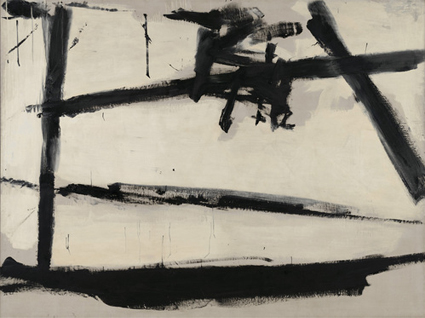Franz Kline didn't talk much about his work - one reason, perhaps, why others haven't much either. Andrew Graham-Dixon on a forgotten hero
Franz Kline did not like to talk about his big, nearly clumsy, heavily worked abstract paintings, and most of his remarks about his own art amount to attempts to change the subject. ''Salvador Dali once told me my work was related to John of the Cross, whom he called 'the poet of the night','' Kline remarked in an interview given in 1957. He then added the proviso that ''not having read St John of the Cross, I wouldn't know''. He also pointed out, with characteristically wry but more specific unhelpfulness, that ''the painting I called Dahlia doesn't have anything to do with a dahlia.'' A mute and incommunicative interviewee (though only on the subject of his work) he left it to his pictures, with their great slabs and arches and grids of black paint on dirty white grounds, to do their own talking.
Franz Kline's incommunicativeness on the subject of Franz Kline may have contributed to the slow decline of his reputation since his premature death, from heart failure, at the age of 51. Once regarded as one of the leading Abstract Expressionists, his work has subsequently fallen into neglect, partly because of his reluctance to back it up with statements of intent. Mark Rothko and Jackson Pollock, his more celebrated contemporaries, explicitly described the ambitions that lay behind their canvases - and by doing so they helped to create a set of terms, and a framework of ideas and values, within which Abstract Expressionist art has more or less ever since been discussed. But their goals were not Kline's goals, and his paintings make no sense at all when they are measured by the standards appropriate...


